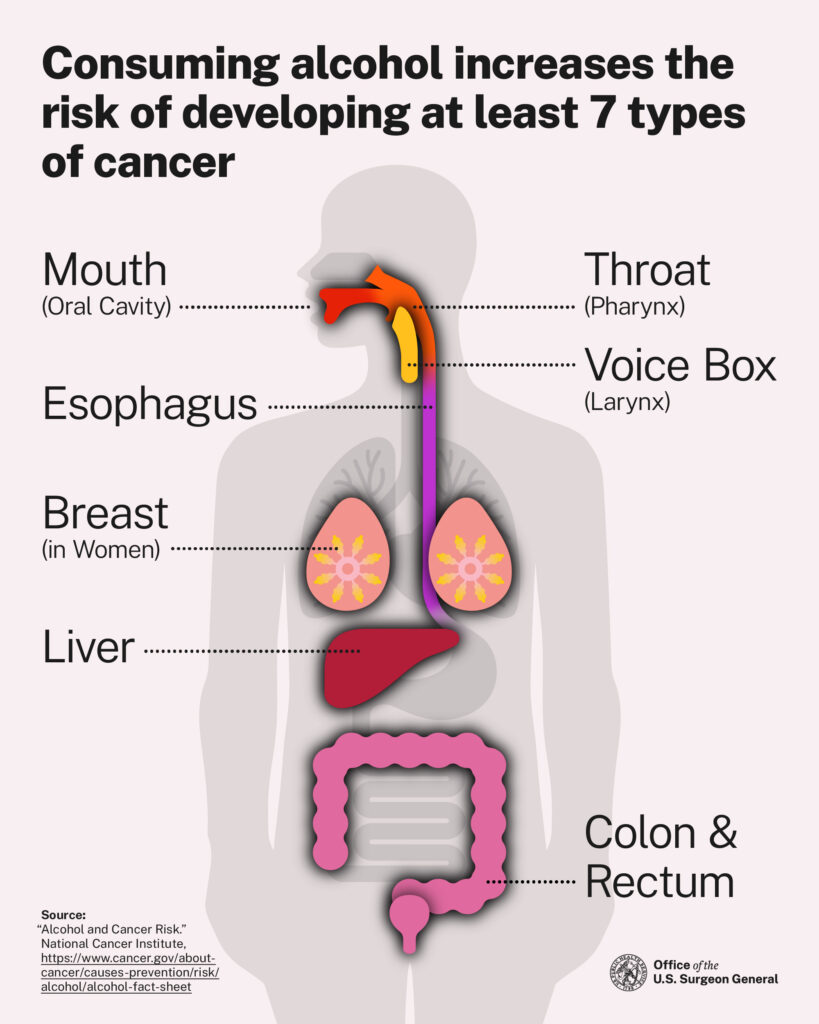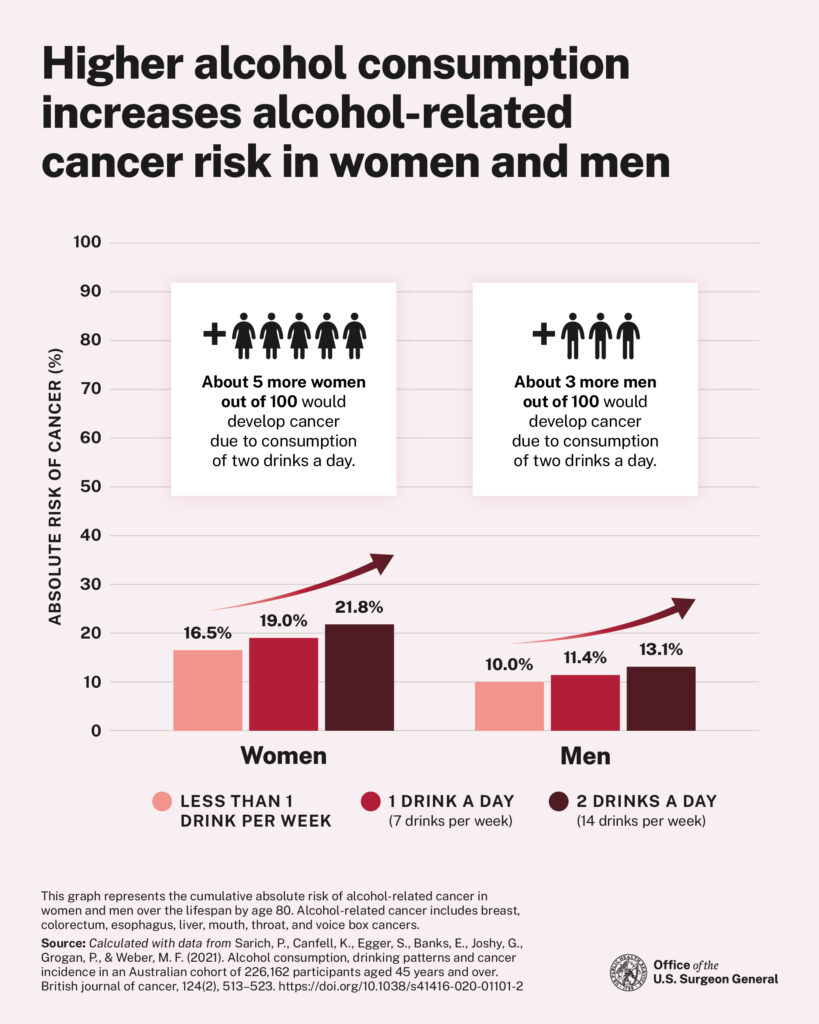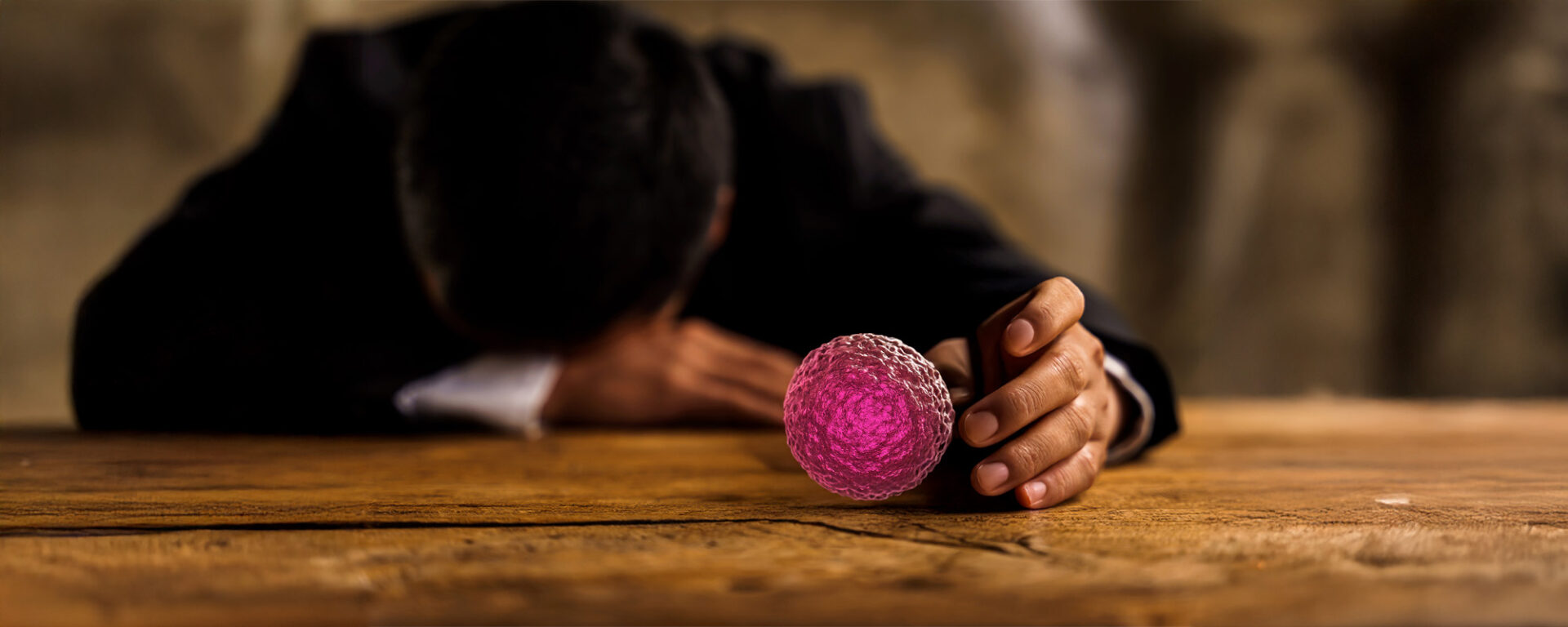When you think about cancer prevention, what comes to mind? Perhaps avoiding smoking, wearing sunscreen, or eating more fruits and vegetables. But did you know that alcohol consumption is one of the leading preventable causes of cancer? Yes, that glass of wine, beer, or cocktail may carry risks you’ve never considered.
In the United States alone, alcohol is linked to about 100,000 new cancer cases and 20,000 cancer-related deaths each year. These numbers are not just statistics; they represent real people, families, and communities affected by a preventable tragedy.
Alcohol and Its Cancer Connection
The science is clear: alcohol increases the risk of at least seven types of cancer, including:
- Mouth and throat cancer
- Esophageal cancer
- Liver cancer
- Colon and rectal cancer
- Breast cancer – women

For example, even moderate alcohol consumption—as little as one drink a day for women or two for men—has been linked to a higher risk of breast cancer. In fact, the International Agency for Research on Cancer (IARC) classifies alcohol as a Group 1 carcinogen, the same category as tobacco and asbestos.
Why Does Alcohol Cause Cancer?

Alcohol doesn’t directly cause cancer, but its breakdown in the body releases acetaldehyde, a toxic chemical that damages DNA and prevents cells from repairing themselves. This cellular damage lays the groundwork for cancer to develop. Alcohol can also increase estrogen levels, which is particularly significant for breast cancer risk, and it reduces the body’s ability to absorb essential nutrients like folate that help protect against cancer.
Rethinking “Moderate Drinking”
For years, the idea of “moderate drinking” has been marketed as a safe or even beneficial practice. You’ve likely heard claims that red wine is good for your heart or that a beer here and there is no big deal. However, recent research is challenging this notion. According to the latest advisory from the U.S. Surgeon General, even small amounts of alcohol carry risks.

What’s Being Done?
Recognizing the need for public awareness, U.S. Surgeon General Dr. Vivek Murthy recently proposed new warning labels on alcoholic beverages to inform consumers about their cancer risks. These labels would be similar to the warnings on cigarette packs—bold, clear, and unavoidable. Public health experts believe this is a crucial step in empowering people to make informed choices about their alcohol consumption.
What Can You Do?
The good news is that reducing your alcohol intake can significantly lower your cancer risk. Here are some practical steps:
- Know Your Limits: If you drink, aim to stay within Canada’s Low-Risk Alcohol Drinking Guidelines: no more than 10 drinks a week for women and 15 for men, with no more than 2-3 drinks on any single day.
- Try Alcohol-Free Alternatives: Non-alcoholic beers, mocktails, and other options can help you cut back without feeling left out at social events.
- Be Informed: Understanding the risks can help you make better choices for your health.
Final Thoughts
It’s easy to overlook alcohol as a health hazard because it’s so ingrained in our culture and daily lives. But the evidence is irrefutable: alcohol consumption is a significant, preventable cause of cancer. By raising awareness and making informed choices, we can all take steps toward a healthier future.
The next time you reach for that drink, consider your health and the facts. Sometimes, the best choice is the one that prioritizes your well-being. After all, prevention is always better than cure.

